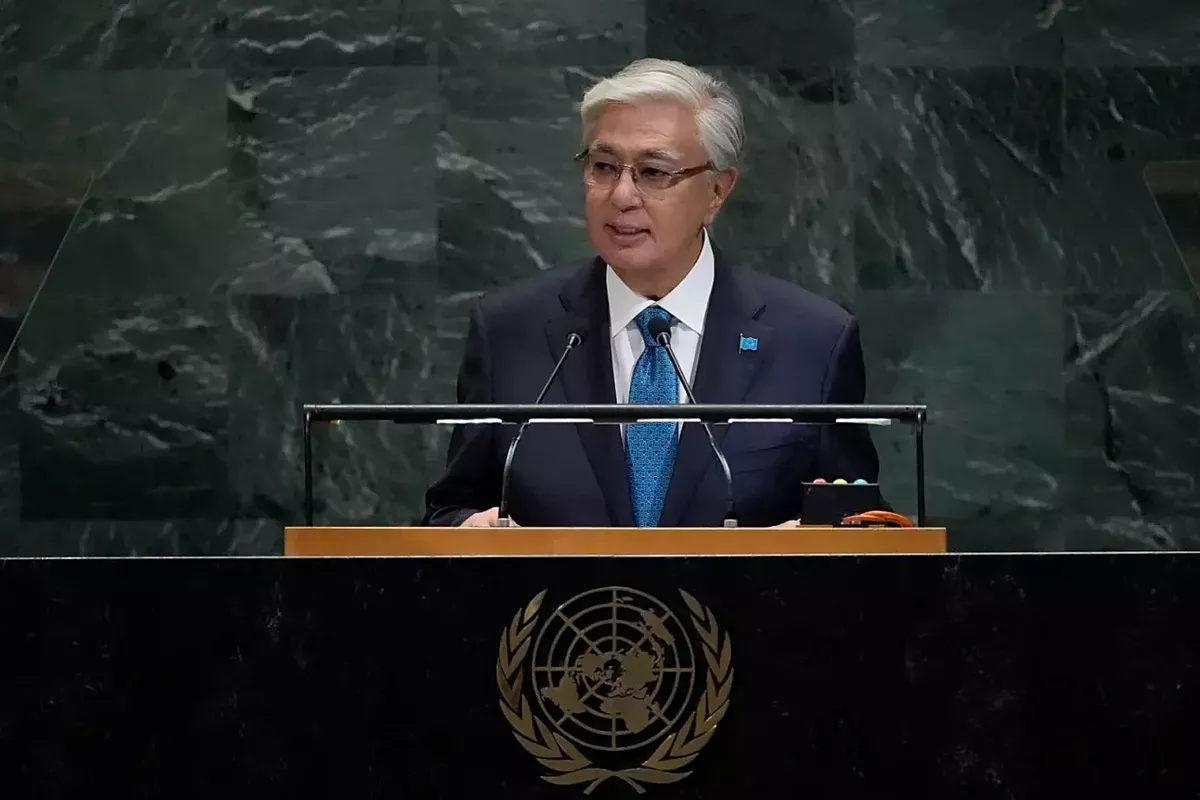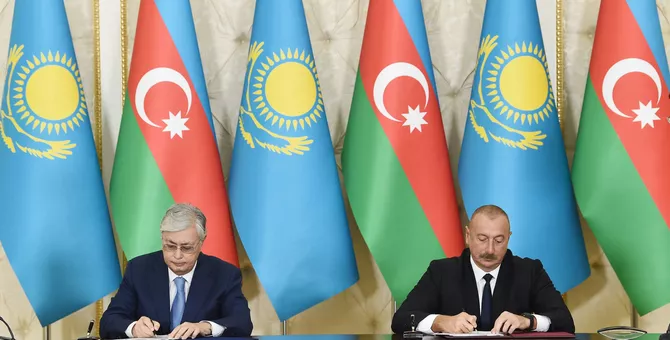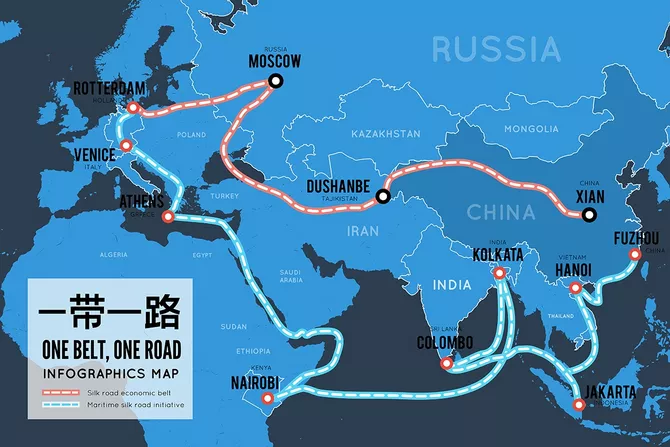
photo: Euronews.com
The ongoing 80th session of the United Nations General Assembly is unfolding at a time of deep global transformation, where turbulence and uncertainty dominate the international landscape. Against this backdrop, the address delivered by Kazakhstan’s President Kassym-Jomart Tokayev stood out as both timely and visionary, offering a roadmap for reform and stability in a world increasingly fractured by conflict and mistrust.
Tokayev began his speech by underscoring the enduring role of the UN as a pillar of hope and a platform for solving humanity’s most pressing problems. For eighty years, the organization has symbolized the possibility of collective action. Yet today, the erosion of international law, unchecked geopolitical rivalries, and the breakdown of trust between nations threaten its very foundation. Tokayev called for comprehensive reform of the UN, with a particular focus on restructuring the Security Council to better reflect the diversity of the modern world. He proposed expanding its membership to include a rotating representation of countries from Asia, Africa, and Latin America-regions historically underrepresented in global decision-making.

photo: President.az
Central to Tokayev’s vision is the role of middle powers, a category that includes countries like Kazakhstan and Azerbaijan. These nations, while not global superpowers, increasingly act as bridges between larger, often divided, players. Tokayev argued that middle powers are uniquely positioned to foster dialogue and practical solutions when major powers are locked in stalemates. This call for inclusivity is grounded in a firm commitment to the principles of sovereignty, territorial integrity, and peaceful conflict resolution-values that, he emphasized, must be upheld without exceptions. The president urged world leaders to build a new global consensus based on openness and shared responsibility.
Tokayev also addressed the urgent need to restore a reliable global security architecture. In a world shadowed by the risk of nuclear escalation, he stressed the importance of eradicating militaristic mindsets and breaking free from the psychology of enmity that fuels protracted conflicts. As a stark example, he pointed to the humanitarian catastrophe in Gaza. In contrast, Tokayev highlighted the recent normalization of relations between Azerbaijan and Armenia, achieved with the mediation of Donald Trump, as proof that even the most entrenched disputes can be resolved through diplomacy and reason. For Kazakhstan, the path forward must always favor dialogue over escalation and diplomacy over force.
Rejecting the notion of an inevitable “clash of civilizations,” Tokayev warned against political manipulation of religion and identity for short-term gain, arguing that such tactics corrode trust and obstruct the pursuit of peace. Instead, he called for tolerance and wisdom, anchored in the rule of law, as the foundation of a durable global order.
Naturally, Tokayev devoted special attention to Kazakhstan’s own geopolitical significance. Situated at the very heart of Eurasia, Kazakhstan is positioning itself as a vital logistics hub for the 80 percent of land-based transit between Asia and Europe. The country is investing tens of billions of dollars in transport and transit infrastructure, including participation in China’s Belt and Road Initiative, the North-South Transport Corridor, and the Trans-Caspian International Transport Route. By 2029, Kazakhstan plans to build 5,000 kilometers of new railway lines, dramatically expanding its connectivity.

photo: Asia Society
Tokayev emphasized that this vision is not just national but regional. Central Asia as a whole is experiencing a renewed spirit of unity and mutual trust, transforming itself into an active contributor to global peace and progress. The so-called “Central Asian Five” has demonstrated that regional solidarity can become a powerful driver of development and security, enabling the region to engage with major global players through unique “Central Asia Plus” dialogue formats.
Environmental issues also featured prominently in Tokayev’s address. He sounded the alarm over the accelerated melting of glaciers in the Alatau Mountains, a process that threatens water and food security for millions. While Kazakhstan has successfully preserved the northern part of the Aral Sea through consistent efforts, Tokayev warned of another looming ecological disaster: the rapid shallowing of the Caspian Sea. This urgent challenge, he said, requires immediate joint action to protect the Caspian’s water resources. To this end, Kazakhstan will host a regional environmental summit in Astana in 2026, in partnership with the UN and other international organizations.
Looking inward, Tokayev outlined his strategic vision for Kazakhstan’s transformation into a fully digital state within three years, with a parallel focus on advancing professional education. At the heart of these reforms is the protection of the rights and interests of law-abiding citizens-a priority that reflects Kazakhstan’s broader commitment to modernization and good governance.
Tokayev’s speech was more than a set of policy proposals; it was a declaration of Kazakhstan’s confident role on both the domestic and international stage. By articulating a vision that blends national development, regional cooperation, and global responsibility, he positioned Kazakhstan as a pivotal middle power with growing influence far beyond its borders. In a world searching for bridges rather than divisions, Kazakhstan’s message resonates as a call for collective action, pragmatic diplomacy, and hope.
Share on social media